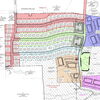Processing Your Payment
Please do not leave this page until complete. This can take a few moments.
Restarting the economic engine | After taking a beating during the recession, Maine Machine Products Company starts firing on all cylinders
The company wasn't alone: In the three years through August 2003, Maine lost more than 22% of its manufacturing workforce ˆ nearly 18,000 jobs ˆ according to the National Association of Manufacturers. Jeremy Leonard, a consultant with the Arlington, Va.-based business research firm Manufacturers Alliance/ MAPI, notes that in the post-Sept. 11 economic slowdown, manufacturing suffered from weak demand, a soft export market and high labor costs versus foreign competitors. "Manufacturing in general was hit much harder than the overall economy," he says.
But these days, Sutton says business couldn't be better. MMPCo., which produces a wide range of components for the telecommunications, semiconductor, medical, defense and commercial industries, is seeing renewed demand from its customers. A 25,000-square-foot addition, which was completed during the recession and stood empty for months, now is humming with new machinery, and the company's employee base is nearing pre-recession levels. MMPCo.'s revenues, which slipped from $32 million in 2000 to just $12 million last year, are expected to rebound to roughly $25 million in 2004. What's more, the company recently landed a lucrative new contract from a national firm that's expected to deliver millions of dollars a year in revenue.
The turnaround is due in part to a larger trend: In April 2003, manufacturers began to see a mounting recovery in production, and an increase in capital spending has helped boost orders ˆ especially in the telecommunications and semiconductors industries, big markets for MMPCo.'s components. But MMPCo. also is reaping the benefits of a long-term strategy its management ˆ including Sutton's three sons, Jeff, Dave and Ted ˆ put into place during the dark days of the recent recession. Sutton hopes that strategy ˆ which includes a national network of sales reps, a diversified product line and an increased reliance on outside advice ˆ will help the firm avoid the carnage of the past few years by recasting MMPCo. as a national player in the precision custom manufacturing industry. Most of its competitors are small, family-run businesses, and Sutton thinks MMPCo. can take
advantage of its heft to steadily gain market share among new and existing customers.
Room to expand
All of this is big news for a company that was founded in 1957 in Paris by Roland Sutton and fellow engineer Bill Detert. Sutton, who fell for the Maine way of life after a vacation at his wife's family camp in Norway, convinced Detert that they should leave their engineering jobs in Chicago and start a new business in western Maine. While on vacation, Sutton had visited an old engine repair shop, housed in a former creamery, that was going up for auction; the pair bought the building for $5,000. The new company, Maine Machine Products Co., started with just two employees and a handful of cantankerous, belt-driven machines that often refused to budge on cold winter mornings.
As the company built its client base and solidified its cash flow, Sutton and Detert plowed money back into the business to keep pace with emerging technologies in the manufacturing industry. The company was among the first plants in Maine to acquire a computer numerically controlled cutting machine, which now is standard issue. To complement the company's increasing array of high-tech machinery, Sutton and Detert actively worked to raise the skill level of MMPCo. employees. Apprentice programs were established to train workers, and the company eventually set up a scholarship with what is now Central Maine Community College, paying tuition for students who agreed to come work for MMPCo.
Today, MMPCo.'s headquarters are just down the road in South Paris, tucked into a tidy industrial lot in the woods outside of the town's main drag. The 75,000-square-foot facility is dominated by scores of high-tech precision machines (each costing between $100,000 and $500,000), and enclosed rooms on the edges of the main workspace house state-of-the-art, dust-free clean areas for semiconductor component assembly and specialized work rooms for polishing and finishing custom-fabricated parts.
During the recession, Sutton and company realized that parts of MMPCo. needed to be overhauled ˆ or rebuilt completely ˆ to keep pace with the changes in the manufacturing industry. The Suttons figured that diversifying the company's business would help to avoid sector-specific meltdowns, like those in the semiconductor and telecommunications industries. During the recession, those sectors were among both the worst performing in the market and the most important for MMPCo. (The weak market for semiconductors and related components contributed significantly to the loss in industrial production between June 2000 and December 2001, according to Manufacturers Alliance/MAPI.) To that end, in 2002 MMPCo. linked up with Whippany, N.J.-based First Index, an online business-to-business marketplace that links buyers and suppliers of custom manufactured parts.
The experience with First Index was largely hit or miss, but the company in 2003 did manage to land a bidding opportunity with Houston-based Dresser Flow Solutions, a subsidiary of Addison, Texas-based Dresser Inc. Dresser Flow, which supplies valves and pumps to the oil and energy industry, was looking to outsource the manufacturing and shipping of its Texsteam chemical pump line. Sutton, now in his mid-70s, figured his company was the perfect choice for Dresser, especially since MMPCo.'s recent expansion created a ready space for a new manufacturing initiative. The Suttons pushed hard during the nearly six-month process to cut through the more than 100 companies vying for the contract, including numerous trips to Houston to give elaborate presentations on why Dresser should relocate its chemical pump division to rural Maine.
When MMPCo. was chosen as one of four finalists, Dresser execs announced they would visit South Paris to examine the firm's operations. The visit was a major coup for MMPCo.: "Our plant is the best presentation we can make as a potential supplier," Sutton says. "We figure that anytime we get someone in our plant, if we can't sell them then, we'll never sell them."
Sutton didn't leave much to chance: Dresser representatives arrived to find in MMPCo's newly expanded facility a huge Texas flag hanging beside the Maine state flag. A sign proclaimed that the nearly empty plant addition was the new home of Dresser's pump division. MMPCo.'s board of directors were on hand and Sutton presented Dresser execs with a carefully planned layout of how the company would handle the manufacturing and worldwide shipping of the pumps. The result: "I think we blew their socks off," says Sutton, who jokes that he was ready to have Gov. John Baldacci place a call to Dresser executives if the plant visit didn't pan out.
Dresser awarded the contract to MMPCo. in January, and Sutton expects the new division to generate roughly $6 million in annual revenues. MMPCo. President Jeff Sutton notes that the Dresser contract has created 18 new jobs at the plant. Though the contract's terms are for five years, both Jeff and Roland Sutton expect the Dresser division to be a long-term part of MMPCo.'s operations.
"Maine Machine Products has all the elements we are looking for in a long-term relationship," Dresser Flow Solutions procurement manager Tom Gally says in a written statement provided to Mainebiz. "They are a financially stable, state-of-the-art company with a long record of successful service to industry and the community. Their quality culture and emphasis on customer service will help ensure a long and mutually beneficial relationship."
The outsourcing boom
Unlike most family-run businesses, the Suttons haven't shied away from bringing outsiders into the MMPCo. fold. Since the late 1990s, they've slowly bolstered the firm's financial and engineering arms with well-trained outsiders, including Michael Faunce, a Maine native with decades of corporate financial experience, who has served as chief financial officer since 1998. MMPCo. also recently put together a board of directors ˆ including Banknorth CEO William Ryan and Tim Hussey, CEO of North Berwick-based Hussey Seating Company ˆ to offer the firm outside advice.
One suggestion the board made was that MMPCo. set up a national sales force to tap new geographic markets and help beef up its revenues. The company had tried such a strategy decades ago without success, running into problems managing the far-flung sales representatives.
But in 2003, after prompting from the board, MMPCo. consulted Bob Andrews, a retired sales executive Sutton met through a local branch of SCORE, a nonprofit organization whose network of retired businesspeople offer a wide range of business consulting and mentoring services to small businesses. Andrews signed on as a sales consultant with MMPCo., helping establish a 12-person sales and marketing force to drum up business in markets the company was looking to break into.
That move already is paying off: Between 15% and 20% of the company's orders are now coming from new customers in states such as Florida, Texas, California, New York and Pennsylvania. "The new sales force has been a fundamental change in how we sell," says Jeff Sutton. "We've always had an active direct sales force, including myself, but we really needed to hustle and get some activity going."
In addition to the geographical problems, the failure of MMPCo.'s first national sales force was due in part to the trend, prevalent in the 70s and 80s, of companies doing the bulk of their manufacturing in-house. These days, however, in-house manufacturing is a much more expensive proposition, and firms increasingly are finding it more cost-effective to outsource manufacturing. Much of that work, especially in the automotive, electronics and textiles industries, is heading to manufacturers overseas, who can underbid domestic manufacturers. But specialized firms such as MMPCo. are able to retain the bulk of their customers because of the complex and intricate work they do. "We're very much a custom shop and very much a precision shop, and that's a niche that hasn't yet gone overseas," says Faunce. "But that doesn't mean it won't, so we have to keep on our toes. We just have to deliver faster and better."
The outsourcing trend is just one part of a puzzle that Sutton and sons ˆ as well as the company's board of directors, employees and management ˆ are trying to keep close tabs on. But in that puzzle, Roland Sutton sees big opportunity. "Manufacturing is capital intensive and takes a huge amount of training, which are two things that most companies don't want to put up with anymore," says Sutton. "Thanks to [that trend], the business opportunities in the world that we're in right now are the greatest they've ever been."










Comments